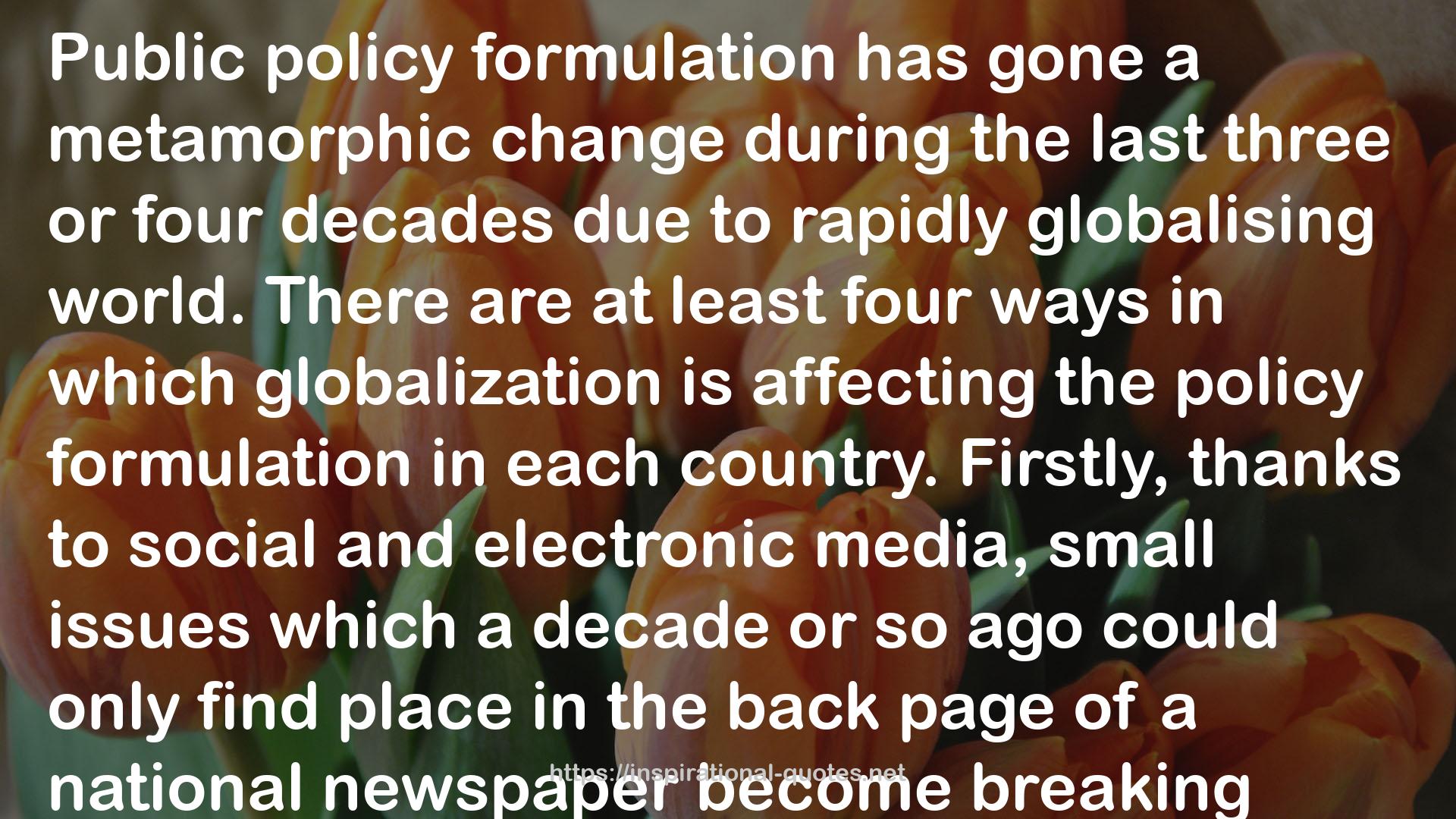" Public policy formulation has gone a metamorphic change during the last three or four decades due to rapidly globalising world. There are at least four ways in which globalization is affecting the policy formulation in each country. Firstly, thanks to social and electronic media, small issues which a decade or so ago could only find place in the back page of a national newspaper become breaking news in major global channels creating advocacy and sympathy movements in different parts of the world. Secondly, with the rapidly globalizing world, global issues like environmental degradation, climate change, GMO, etc., which were only discussed in the corridors of power are being debated in the drawing rooms of countries and creating strong advocacy movements among the population.
Thirdly, centers of actual power and decision making are shifting from local to global level with the outreach of domestic interest groups to their sympathizers in international organizations, multinational corporations and those in the governments of global powers. This outreach enables them to force their own government to accede to their demands because of economic and political clout of the global players. Lastly, whether approached by the domestic interests or not, global state and non-state actors are increasingly penetrating those domains which were henceforth exclusively reserved for the domestic state machinery. They not only interfere in the policy formulation but are now acting direct through their proxies in the form of nongovernmental organizations in domestic policy formulation and implementation. "
― Shahid Hussain Raja , Public Policy Formulation and Analysis
